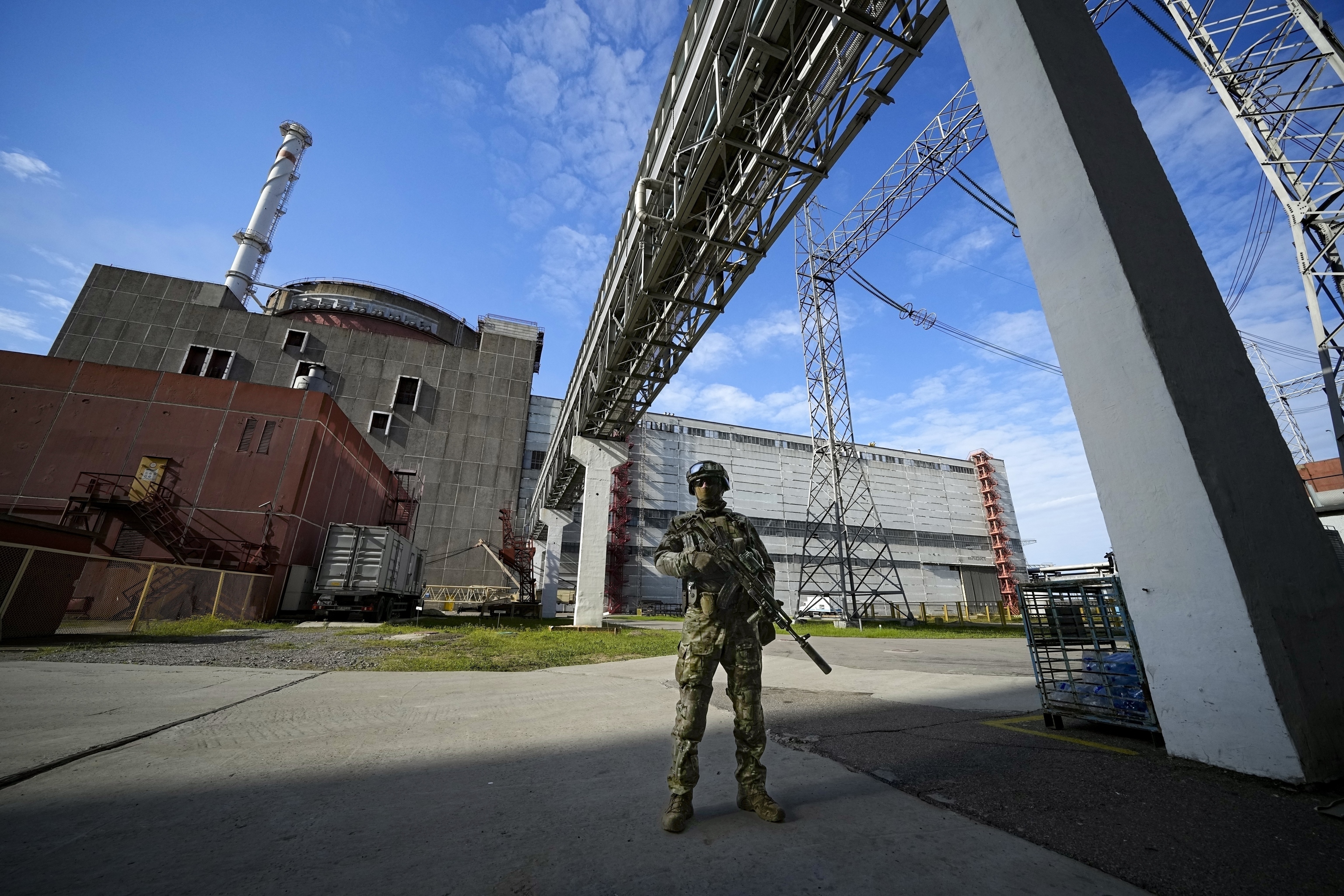Russia may eventually restart the Zaporizhzhia nuclear plant that it seized in southeastern Ukraine but shares the view of international monitors that it's not practical and possibly dangerous to do so now, the U.N. nuclear watchdog chief said Monday.
International Atomic Energy Agency Director-General Rafael Grossi said he gained an understanding of Russia's position during a meeting last week in Kaliningrad with Alexey Likhachev, the director-general of the Russian nuclear energy agency Rosatom.
Grossi told reporters at a meeting of the IAEA's 35-nation board of governors in Vienna that Russia does not plan to decommission the plant. Moscow has "the intention of using this plant" but also recognizes "that at the moment this would be not practical and perhaps even dangerous," Grossi said.
Grossi said his May 28 discussions with Russian officials were to "assure that we are on the same wavelength" but that the outcome could not be characterized as a "formal agreement."
Zaporizhzhia is Europe's largest and one of the 10 biggest nuclear plants in the world. While its six reactors have been shut down for months, it still needs power and qualified staff to operate crucial systems to cool the reactors and the spent fuel pools.
Russian forces seized the Zaporizhzhia plant days after Russian president, Vladimir Putin, ordered the invasion of Ukraine in February 2022, and since then Russia and Ukraine have repeatedly traded blame for shelling near the plant.
Grossi said the main dangers of restarting the nuclear plant are the continuing military operations in the region and the precarious nature of the external power supply, where he said there continues to be "oscillations or even blackouts."
Grossi said that for the nuclear plant to be restarted safely, there must not be "any bombing or any activity of this type," and there needs to be a stable external power supply along with several other safety assessments.
The IAEA last reported on May 23 that the Zaporizhzhya plant temporarily lost the connection to its sole remaining off-site power line "due to a reported short-circuit, leaving it reliant on a single back-up line for more than three hours" which it said underlined "the extremely precarious nuclear safety and security situation" at the plant.
The International Atomic Energy Agency has repeatedly expressed alarm about the plant amid fears of a potential nuclear catastrophe.
Grossi last met Russian President Vladimir Putin in the Black Sea resort of Sochi in March.
